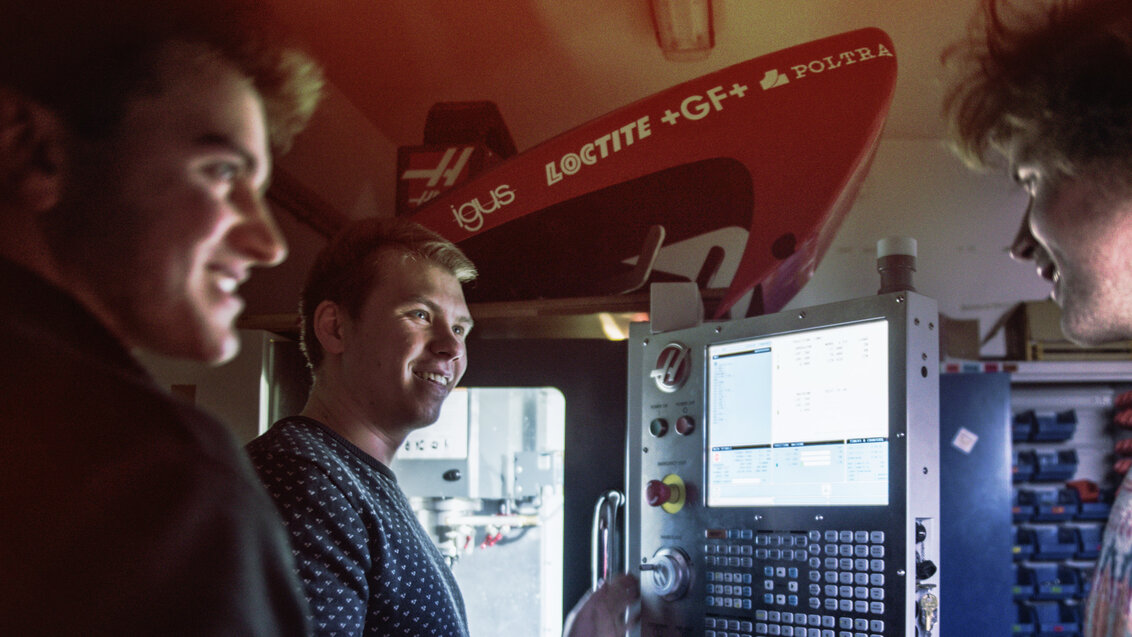
Photo: KSAF AGH
The competition committee has selected projects of the AGH UST student research clubs that will receive funding within the ‘Rector’s Grant’ competition, 2022/2023 edition.
Of 92 submitted applications, 11 were granted strategic status, and therefore the highest amounts of money (strategic projects are those projects the effects of which will be visible in a long-time horizon, promising complete scientific/construction success, and, therefore, effectively promoting the university). 76 projects were marked as fundamental grants.
Undoubtedly, the projects that received funding must have included the flagship student constructions of the AGH UST, which will now be upgraded: solar boat, the Kalman rover, space rocket, solar plane, electric motorcycle, Hyperloop goods capsule, racing bolides. Traditionally, the competition also invited entirely new interdisciplinary projects, such as the solar powered electric car ‘Perła’ or the Halyna wind turbine.
A considerable number of applications were related to space, IT, robotics, new technologies, and renewable energy sources, for example:
- Building a waste-substrate greenhouse powered by renewable energy sources (Ekospirit SRC)
- Developing a research pod to carry astrobiological experiments for near-space tests in the stratosphere (AstroBio SRC)
- Developing a technology for reinforcing thin glass for display screen production (Ceramit SRC)
- Creating Riksza H2 – a research platform for zero-emission electric transport containing a hydrogen-oxygen fuel cell (FECEN SRC)
- Developing a device for processing PET plastics from bottle recycling processes into 3D printing filament (Promat SRC).
A portion of the projects revolves around humanitarian activities, supporting people with disabilities and the medical sector, as well as improving life quality and helping animals. Such projects include the following:
- Developing a prototype of an ultra-light drone for transporting blood and medical products (AGH Drone Engineering)
- Applying crewless solar planes to support humanitarian activities (AGH Solar Plane)
- Modifying a Segway-type device intended for people with disabilities (Creative SRC)
- Creating ZAWRAT – an automated assistant for supporting rescue missions in the mountains (Mechanicy Górnicy SRC)
- Developing deep learning algorithms to assess the quality of histopathological data (Biometr SRC)
- Creating an indoor navigation system that precisely determines the location of the user and visualises data in a mobile application (Geodeci Dahlta SRC)
- Designing and building a prototype of a shelter for dogs with increased acoustic insulation (Akustyka Architektonicza SRC)
- Investigating the influence of an appropriate and engaging relationship between a human and a dog on the physical and mental health of the human (Biometr SRC).
‘All our research clubs conduct extraordinary scientific research, create bold constructions, and want to continue inventing and building. It all transpires from the project descriptions. We hope that the money from the Rector’s Grant competition, the university infrastructure, and expert and administrative support that we provide to our research clubs will allow them to make their dreams and passions come true, and to influence the development of science and technology, in the broad sense’, says Dr (Eng.) Joanna Augustyn-Nadzieja, Rector's Proxy for Student Research Clubs of the Red Field and a member of the competition committee. She adds: ‘I am not afraid to say out loud that we have very clever students, bold in their visions of creating things suitable for the 21st century’.
Complete lists:
 Pre-election meeting with a candidate for the position of rector
Pre-election meeting with a candidate for the position of rector  Agreement on cooperation with OPAL-RT
Agreement on cooperation with OPAL-RT  Krakow DIANA Accelerator consortium members with an agreement
Krakow DIANA Accelerator consortium members with an agreement  Meeting with the Consul General of Germany
Meeting with the Consul General of Germany  More Academic Sports Championships finals with medals for our students
More Academic Sports Championships finals with medals for our students  Bronze for our swimmers at Academic Championships
Bronze for our swimmers at Academic Championships  Smart mountains. AGH University scholar develops an intelligent mountain rescue aid system
Smart mountains. AGH University scholar develops an intelligent mountain rescue aid system